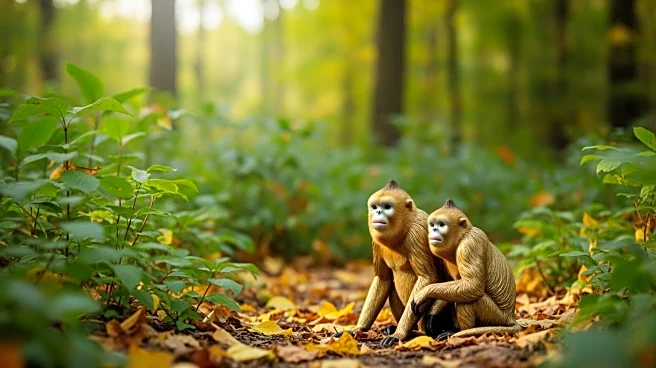What's Happening?
China has sent its endangered golden snub-nosed monkeys to European zoos for the first time, marking a new chapter in its animal diplomacy efforts. These monkeys, known for their distinctive orange manes and blue faces, have been loaned to zoos in France
and Belgium for a decade. This initiative follows the model of 'panda diplomacy,' where China uses animal exchanges to foster international relations. The monkeys are intended to promote scientific and conservation collaboration between China and the host countries. The zoos involved are working on joint research and conservation programs, similar to those established for pandas.
Why It's Important?
The introduction of golden snub-nosed monkeys to Europe highlights China's ongoing use of wildlife as a tool for soft diplomacy. This move could strengthen scientific ties and conservation efforts between China and Europe, potentially leading to significant advancements in the understanding and preservation of these endangered species. However, it also raises ethical concerns about the welfare of animals transported over long distances. The initiative underscores the importance of international cooperation in wildlife conservation and the role of cultural diplomacy in global relations.
What's Next?
The zoos in France and Belgium will continue to monitor the health and adaptation of the monkeys to their new environments. Future collaborations may include more extensive research projects and conservation initiatives. The success of this program could lead to similar exchanges with other species, further enhancing international conservation efforts. Additionally, the program's impact on public perception of China and its wildlife conservation policies will be closely watched.
Beyond the Headlines
This development may influence how countries use wildlife in diplomatic efforts, potentially leading to a broader acceptance of animal exchanges as a form of soft power. It also raises questions about the ethical implications of using animals in diplomacy and the responsibilities of host countries in ensuring their welfare. The program could set a precedent for future international wildlife exchanges, emphasizing the need for ethical guidelines and conservation-focused objectives.


















